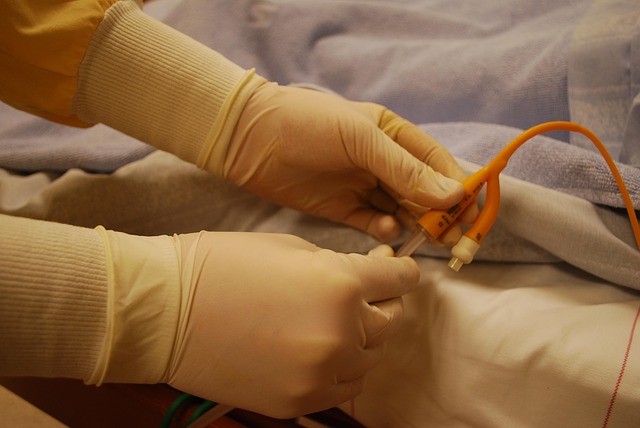Your Guide to Accelerated Nursing Programs: A Practical Path for Career Changers
Thinking about switching careers into nursing? This guide explores how accelerated nursing programs allow individuals with a non-nursing bachelor's degree to enter the field in as little as 12 months. With a structured curriculum that includes clinical rotations, academic coursework, and NCLEX-RN exam preparation, these programs are designed to be both intensive and supportive. Explore how this fast-track path can offer a practical way to start a meaningful career in healthcare.

What are accelerated nursing programs?
Accelerated nursing programs, often referred to as ABSN programs, are designed for individuals who already hold a bachelor’s degree in a non-nursing field. These fast track nursing degree options condense the traditional four-year nursing curriculum into a shorter, more intensive format. Typically lasting 12 to 18 months, these programs provide students with the necessary knowledge and skills to become registered nurses (RNs) in a fraction of the time it would take through a traditional nursing program.
Who is eligible for ABSN programs?
To be eligible for accelerated BSN programs, candidates must typically meet the following requirements:
-
Hold a bachelor’s degree in a non-nursing field from an accredited institution
-
Maintain a minimum GPA (usually 3.0 or higher)
-
Complete prerequisite courses in sciences such as anatomy, physiology, microbiology, and chemistry
-
Pass a background check and drug screening
-
Submit letters of recommendation and a personal statement
Some programs may have additional requirements, such as healthcare experience or specific standardized test scores.
What does the curriculum of accelerated nursing programs include?
Accelerated BSN programs offer a comprehensive curriculum that covers both theoretical knowledge and practical skills. The coursework typically includes:
-
Nursing fundamentals and theory
-
Pharmacology
-
Health assessment
-
Medical-surgical nursing
-
Pediatric and maternal nursing
-
Mental health nursing
-
Community health nursing
-
Leadership and management in nursing
In addition to classroom instruction, students participate in clinical rotations in various healthcare settings, allowing them to apply their knowledge in real-world situations and gain hands-on experience.
How do accelerated nursing programs differ from traditional nursing degrees?
The primary difference between accelerated nursing programs and traditional nursing degrees lies in their duration and intensity. While traditional BSN programs typically take four years to complete, ABSN programs can be finished in 12 to 18 months. This condensed timeline means that accelerated programs are more intensive, with a heavier course load and year-round study.
Another key difference is the target audience. Traditional BSN programs cater to students entering college for the first time, while accelerated programs are designed for career changers who already hold a bachelor’s degree in another field. This prior academic experience allows ABSN programs to focus exclusively on nursing-specific content, as students have already completed general education requirements in their previous degree.
What are the benefits and challenges of pursuing a fast track nursing degree?
Accelerated nursing programs offer several advantages for career changers:
-
Shorter time to completion, allowing for a quicker career transition
-
Intensive, focused curriculum that prepares students for the nursing profession
-
Opportunity to leverage previous academic and life experiences
-
Faster entry into the high-demand nursing job market
However, these programs also come with challenges:
-
Rigorous and demanding schedule that requires full-time commitment
-
Limited time for work or other commitments during the program
-
Higher cost compared to traditional nursing programs due to the condensed timeframe
-
Intense study and clinical requirements that can be physically and emotionally demanding
How much do accelerated BSN programs cost, and what are some top options?
The cost of accelerated nursing programs can vary significantly depending on the institution and location. Here’s a comparison of some well-known ABSN programs:
| Institution | Program Duration | Estimated Total Cost |
|---|---|---|
| Drexel University | 11 months | $62,000 |
| University of Texas at Arlington | 15 months | $35,000 |
| Northeastern University | 16 months | $82,000 |
| Emory University | 15 months | $92,000 |
| Loyola University Chicago | 16 months | $70,000 |
Prices, rates, or cost estimates mentioned in this article are based on the latest available information but may change over time. Independent research is advised before making financial decisions.
When considering accelerated nursing programs, it’s essential to factor in not only tuition costs but also additional expenses such as textbooks, uniforms, clinical supplies, and living costs. Many institutions offer financial aid options, scholarships, and loan programs specifically for ABSN students to help offset these costs.
In conclusion, accelerated nursing programs offer a practical and efficient path for career changers to enter the nursing profession. While these programs are intensive and demanding, they provide a unique opportunity to transition into a rewarding healthcare career in a relatively short time frame. By carefully considering the requirements, curriculum, and financial aspects of ABSN programs, you can make an informed decision about whether this fast-track option aligns with your career goals and personal circumstances.




